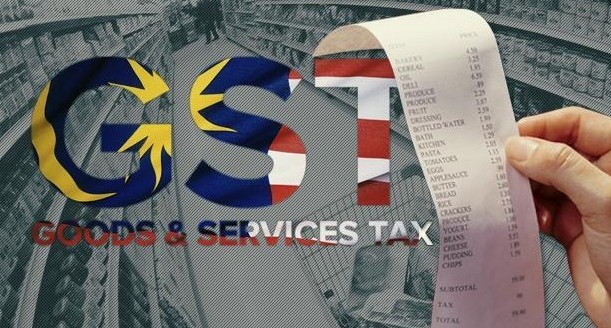KUALA LUMPUR, Nov 27 (Bernama) — The government is now looking at further narrowing its fiscal deficit which eased to 5.6 per cent last year after hitting 6.4 per cent in 2021 amid a much-needed pandemic-induced spending to boost the economy and safeguard Malaysian’s livelihood at large.
Initiatives to ensure more effective and sustainable financial management for the country have been one of the measures by the unity government led by Prime Minister Datuk Seri Anwar Ibrahim.
Under the Mid-Term Review (MTR) of the 12th Malaysia Plan (12MP) 2021-2025 launched in September this year, the government said it will look at ways to broaden its fiscal revenue, with efforts, among others, to improve tax collection by promoting voluntary tax declaration and the introduction of e-invoicing.
No GST, for now
Despite the brouhaha about the reinstatement of the goods and services tax (GST) to boost the government’s fiscal revenue, Anwar, who is also the Finance Minister, however, stood firm that his administration will never burden the people with tax impositions beyond their means.
Although the Treasury acknowledged GST is able to potentially generate more revenue because of its broad base feature and is more transparent to consumers as it is explicitly shown in the final price.
It, however, opts to manage its subsidies first as Malaysia offers blanket subsidies on fuel and cooking oil accounting for the biggest expense. The government also subsidises electricity, sugar and flour.
Subsidies must be targeted, otherwise, those subsidies are enjoyed not just by the low-income group but also by the wealthy, said the prime minister, adding that, it would help the government better manage its revenue and expenditure.
Malaysia has been imposing the single-stage Sales and Service Tax (SST) system since 1972. It was replaced by a six per cent GST between April 2015 and May 2018. The SST returned on Sept 1, 2018.
RHB Bank Bhd economist Chin Yee Sian said should the six per cent GST be reinstated in 2024, the estimated GST collection would be about RM63.5 billion, almost double the RM35.8 billion SST collection projected by the government.
She said to achieve a fiscal deficit target of three per cent of GDP, complete removal of fuel subsidy is necessary, or a combination of at least a GST rate of four per cent and a 90 per cent reduction in fuel subsidy.
“To achieve a balanced budget, a GST rate of 10 per cent is required, coupled with a 70 per cent reduction in fuel subsidies,” Chin said in a research note on Nov 1, 2023.
2023 recap
Despite the absence of GST, the government did introduce several new tax measures in the revised Budget 2023 to increase its coffers, such as raising the income tax by 0.5 to two percentage points on those earning more than RM100,000 to RM1 million.
Meanwhile, a few changes have been made to several new taxes proposed in the previous Budgets.
For instance, the luxury tax which was introduced in the revised Budget 2023 was substituted by the high-value goods tax proposed in Budget 2024, whereby a five to 10 per cent tax to be levied on certain high-value items, such as jewellery and watches based on the threshold value of the goods, starting from May 1, 2024.
The 10 per cent low-value goods (LVG) tax, which was supposed to be imposed on goods sold below RM500 online effective April 1, 2023, under the Budget 2022, has been postponed indefinitely.
On the 15 per cent global minimum tax (GMT), which was first introduced in Budget 2023 and applicable to companies with an annual global turnover of at least 750 million euros (1 euro=RM5.08), the government had deferred the implementation to 2025 from 2024, as proposed in Budget 2024.
Deputy Finance Minister Datuk Seri Ahmad Maslan reportedly said in April this year that GMT could result in additional tax collections of RM1 billion, for a start.
According to the fiscal outlook report, tax revenue is estimated to grow by 9.7 per cent to RM229 billion, or 12.4 per cent of GDP in 2023 against 2022.
The better performance is expected to be driven by better collection of income taxes, measures announced in Budget 2023, and continuous administrative efforts to expand the revenue base, it said.
“Federal government revenue is estimated to grow three per cent to RM303.2 billion, or 16.4 per cent of GDP compared to 2022,” it added.
Moving into 2024
While the MoF projected the federal government’s revenue collection to be widened to RM307.6 billion or 15.6 per cent of GDP in 2024 driven by higher tax collection, several measures had been proposed in Budget 2024 to achieve the goal.
For example, a higher sales tax of eight per cent from the current six per cent will be levied on taxable services comprising logistics services, brokerage, underwriting and karaoke services, with services such as food and beverage, telecommunications, vehicle parking space and logistics being excluded.
The government will also implement e-invoice on a mandatory basis for taxpayers with annual income or sales exceeding RM100 million beginning Aug 1, 2024, and enforce a 10 per cent capital gains tax (CGT) on net gains from the disposal of local companies’ unlisted shares, beginning March 1, 2024.
According to Budget 2024, Malaysia is expected to see its fiscal deficit narrow to 4.3 per cent of GDP in 2024 from the target of five per cent projected in 2023 and 5.6 per cent recorded in 2022.
















